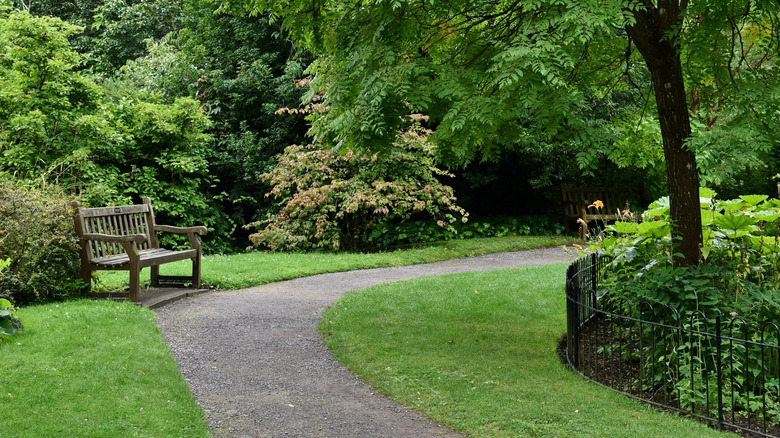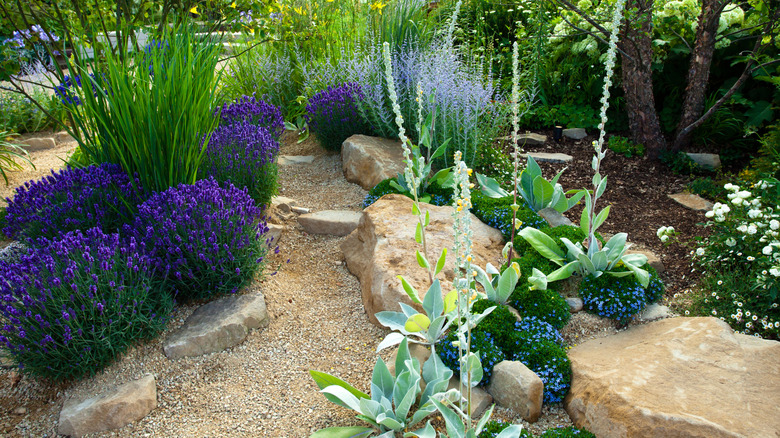The Gravel Alternative That's Great For Hardscaping Projects
Even the lushest garden filled with gorgeous foliage plants and stunning blooms needs a little hardscaping. There are distinct differences between hardscapes and softscapes, and both add interest and practicality to your outdoor areas. Putting in hardscaping elements like paths allows you to easily move through your yard to enjoy all of its magnificence. Plus, pathways with a more solid base make it much easier to maneuver wheelbarrows and garden carts around when you want to top up the mulch or add compost to your garden beds. One of the most common materials to use for hardscaping is gravel. However, you might not be aware that there's an excellent alternative worth considering — decomposed granite. This material has some advantages over using gravel. Unlike gravel, it forms a much harder surface which is better underfoot and eliminates the worry of loose stones ending up in other areas of your yard.
Decomposed granite is made from weathered granite rock that can easily be broken up into gravel-sized pieces. Eventually, these particles may break down further to create a mix of silica sand or silt and clay. This durable hardscaping material is available in a range of natural colors and is often used in public spaces around the world as a walkway alternative to other materials. The characteristic look of decomposed granite also makes it the perfect choice if you're thinking of adding some Tuscan landscaping to your outdoor areas. It's just as easy to install as gravel but will require some extra maintenance.
How decomposed granite performs as a gravel alternative
The cost of decomposed granite is reasonably comparable to the cost of pea gravel. For example, gravel typically costs around $30 to $35 per cubic yard, while you'll find decomposed granite for around $45 per cubic yard. The installation of both materials is similar, too. Both types of aggregate require a well-prepared base, and it's generally advisable to install some type of barrier edging for both to prevent erosion. That said, decomposed granite will compact to form a sturdier base that's more comparable to concrete or pavers, especially if you use a tamper tool or a plate compactor at the time of installation. Thanks to its tendency to compact tightly, you won't have to worry about the stones getting on the turf if your path or driveway is next to a lawn. Plus, the hard surface you can achieve with decomposed granite makes it far easier to move garden implements around. Ultimately, these qualities allow you to create a more durable patio area without worrying about loose stones ending up in other areas of your yard.
This brings us to the differences in maintenance. While gravel may only need to be topped up occasionally, decomposed granite will break down over time. This means that you will need to be replenish the hardscaping elements periodically. You might also find that decomposed granite shifts and form ruts during heavy rains, which may necessitate occasional re-tamping.

